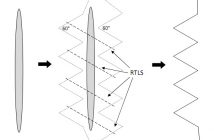The gut of a healthy adult harbours a myriad of different microbial species (approximately 1014 colony forming units). In healthy adults, the main control of intestinal bacterial colonization occurs through the gastric acidity. Moreover, other factors can influence the intestinal microenvironment, as pH, temperature, competition among different bacterial strains, peristalsis, drugs, radiotherapy, and much more. It was found that, when you have an impaired microbial homeostasis, the intestinal microsystembecomes unstable, so that leads to an alteration of the permeability of tissues, together with the activation of the intestinal immune system (MALT). These microenvironmental changes thus provide the substrate for the etiopathogenetic outbreak of numerous pathologies of gastro-intestinal tract, together with a miscellany of extraintestinal disorders. From the foregoing, we understand the real importance of maintaining a correct homeostasis of the intestinal microenvironment, in order to prevent the onset of specific disease of the digestive system.
Related Posts
-
-

-
